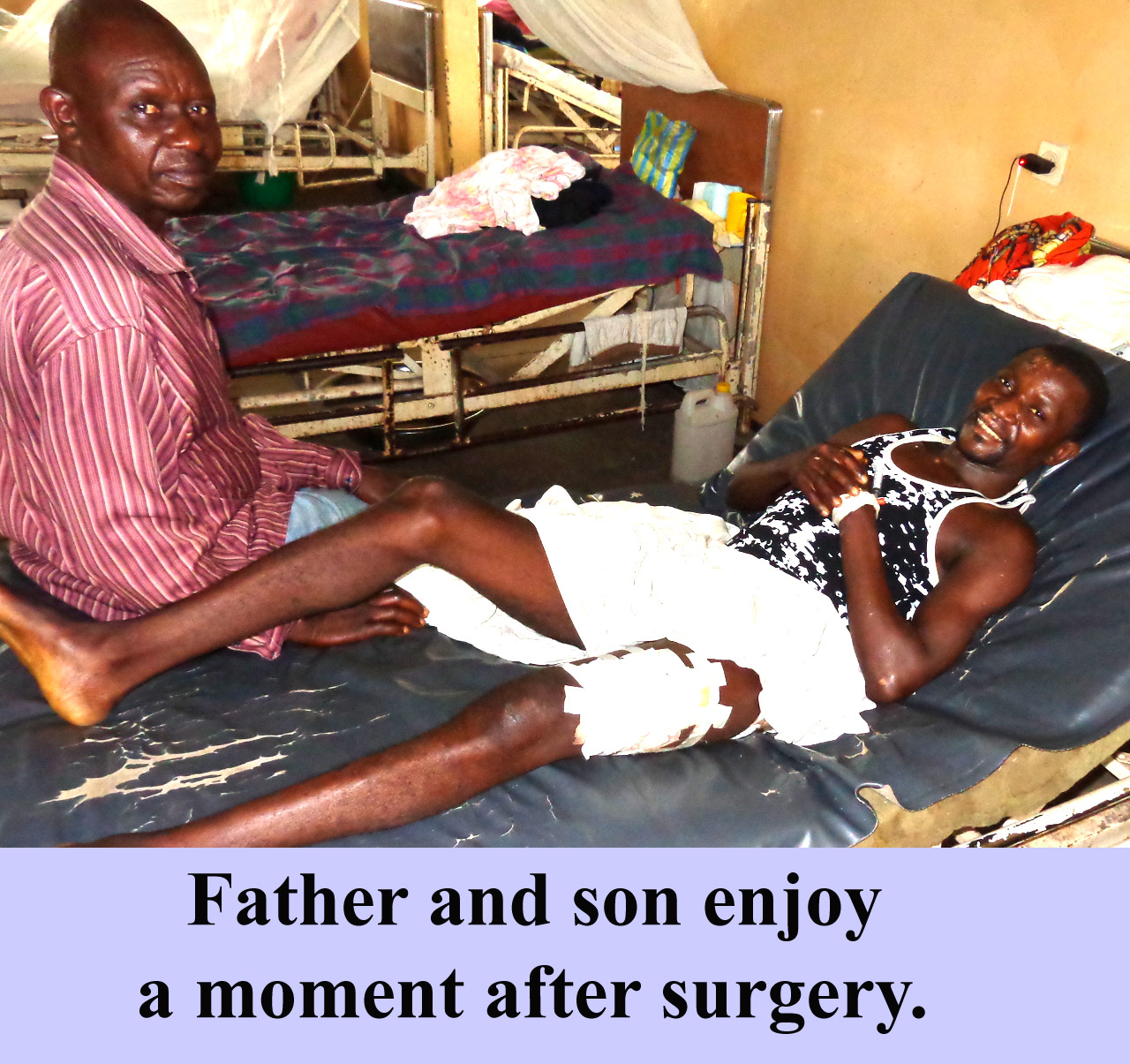John and Gwenda Fletcher - April 2013 Update
Dear Friends,
Almost everyone has either broken a bone or knows someone who has experienced a broken bone. There are also certain particularly unfortunate individuals (Evel Knievel comes to mind) who have broken many bones, many times. Motorcycles have become a primary form of transportation in the Congo. One thing that is not much different between the U.S. and DR Congo is that if you crash a motorcycle you will likely get some broken bones! Improperly treated fractures can lead to serious handicaps which may impair a person’s ability to earn a living. In the United States expert medical care is readily available, and even serious fractures can be properly and promptly treated. As you might imagine, things are slightly different in the DR Congo.
Let me tell you about a young man I’ll call MK, a 27 year-old father of two, who lives in the city of Luiza, DR Congo. He had a motorcycle crash and suffered a closed head injury (he was in a coma) and a compound fracture of the femur (a fracture of the thigh bone in which the bone penetrated through the skin). He was taken to a local hospital where a rudimentary wood splint was applied, and he was placed under observation. After a couple days when his condition failed to improve, his family decided that they should take him to another hospital. They had heard that the Good Shepherd Hospital near the city of Kananga had good facilities, a surgeon, and that the staff provided loving, compassionate care in Christ’s name. The problem was that MK’s family had limited resources, and Kananga was more than 200 km (125 miles-but given the roads, more than a 10-hour trip) away. How could they possibly transport him to Good Shepherd Hospital? Yep, you guessed it, ON A MOTORCYCLE!
Imagine, if you can, transporting a recently injured patient who not only has a badly broken leg, but who is unconscious, on a motorcycle for a distance of 200 km over some of the worst roads in the world. As you might have guessed, this also means three people on the motorcycle - a driver, the patient, and someone to hold the (unconscious) patient on the motorcycle. I frankly can’t figure out how they made it here, but I find that I often cannot figure out how people manage to get by here in the DR Congo.
Fortunately for MK, Good Shepherd Hospital has just begun participating in a new orthopedic program called the SIGN program. This program uses a novel technique for placing a state-of-the-art intramedullary nail (a metal rod) into the femur (thigh bone) without the need for sophisticated x-ray equipment in the OR. And, because this wonderful program is designed for use in developing countries, there is no charge to the patient for the implants.
After MK was admitted to Good Shepherd Hospital, he was put on antibiotics, his leg injury was carefully cleaned and debrided, the fracture was immobilized, and he was closely followed for his head injury. He regained consciousness a day after arriving here. Imagine my surprise when I found him walking into the operating area without his crutches (and thankfully without any pain) to talk with me just 12 days after his operation!
We owe a great debt of gratitude to a wonderful Presbyterian missionary orthopedic surgeon (now retired), Dr. Stan Topple, without whose help we would not have been able to get involved in the SIGN program. Through Dr. Topple’s efforts and support, a foundation provided the funding necessary for our enrollment in the program. After I had special training and participated in the annual SIGN orthopedic conference, we received our equipment.
Another orthopedic surgeon, Dr. Lewis Zirkle who started the SIGN program, is the one who developed this technique with the idea of improving fracture care in the developing world. If you would like to learn more about SIGN you can visit their website at www.signfracturecare.org.
Over the last 25 years the Presbyterian mission hospitals in the DR Congo have been in decline and have suffered greatly as the global funding emphasis has focused on public health programs and preventive care. During the period of massive investment in public health programs, hospitals, which are seen as providing expensive, unsustainable care, have been overlooked and under supported. There is, however, a huge burden of surgical disease and an epidemic of trauma in the developing world which mandate the provision of curative surgical care.
Your prayers and gifts to Congolese Presbyterian Church hospitals make it possible for them to heal and serve the people in this part of Congo. Thank you for helping to make a difference in the lives of MK and others like him.
Blessings,
John and Gwenda Fletcher
Mission co-workers, Democratic Republic of the Congo
Minimum Goal for 2014
$10,000 for the Fletchers' ministry funds
Location
Democratic Republic of Congo

